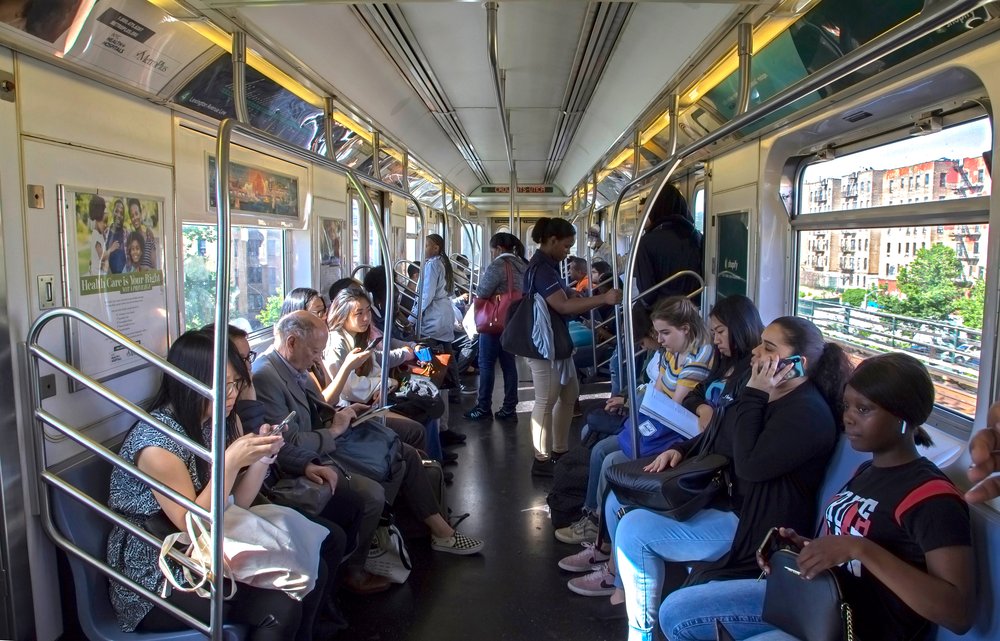MTA approves 1st subway fare hike since 2019
July 19, 2023, 2:50 p.m.
The MTA board voted unanimously to raise the cost of a single ride on the subway or bus from $2.75 to $2.90.

The cost of a subway ride is going up from $2.75 to $2.90.
The MTA Board voted unanimously on Wednesday to approve the fare hike, which also applies to buses. Fares for commuter railroads and tolls were also increased.
The vote marked the first time in four years that the MTA had raised fares. The biannual increases were paused during the pandemic as the agency suffered the financial consequences of low ridership.
“We’re making good on this last brick in this amazing edifice that is the restoration of the MTA’s financial stability. It is an important moment,” MTA Chair Janno Lieber said. “It is not without its downsides because anytime you’re asking people to pay a little more, you know that has consequences.”
The toll increase goes into effect on Aug. 6. The subway and bus fare hikes begin on Aug. 20. Here’s a roundup:
- The cost of a seven-day unlimited MetroCard will increase from $33 to $34, while the 30-day unlimited MetroCard's cost will increase from $127 to $132.
- The express bus fare will increase from $6.75 to $7. The seven-day unlimited express bus pass is increasing from $62 to $64.
- Fares for the Long Island Rail Road and Metro-North Railroad will increase by roughly 4%.
- Tolls at bridges and tunnels will increase 5%.
All reduced fares for seniors will remain in place. Riders will also still receive unlimited rides for the remainder of the week after they’ve paid $34 in single rides, the MTA said.
The MTA previously said it opted to only slightly increase weekly and monthly passes because its research showed that low-income commuters purchased bulk trips at a higher rate than single rides.
Last month, Gothamist reported on the MTA’s $48 billion debt, which threatens the agency's financial future. The pandemic upended the MTA’s business model of using revenue from fares and tolls to pay back loans used to fund improvements to service.
The MTA sees the regular fare hikes as a key step toward stabilizing its books.
During the vote, MTA board member Neal Zuckerman urged his colleagues to approve the fare increases, which he called both “necessary” and “healthy.”
“It is prudent to raise prices given how long it’s been since our last price increase,” he said.
Jai Patel, the MTA's deputy chief financial officer, called the fare and toll increases “modest and predictable” and said they were necessary to “keep up with inflation, avert radical fare and toll fluctuations and mitigate impacts on customers by offering a predictable increase schedule.”
The MTA is also making other changes to keep its finances in order, such as eliminating its losses from fare evasion, which totaled $690 million last year.
It is in the process of modifying all of its subway turnstiles to stop fare evaders from using the turnstiles’ gears to step over entryways – a technique known as “back-cocking.” Other modifications are also in the works, including a complete redesign to stop fare evaders from hopping over the turnstiles.
Meanwhile, transit advocates are calling for more low-cost – or no-cost – public transportation for residents. The MTA selected five bus routes – one in each borough – that will operate without fares for the next six to 12 months starting in late September.
“Bringing continued ridership to the system is how the MTA will continue to fulfill its mission, and also continue to invest in our transit workforce,” said board member Midori Valdivia.
MTA to re-tool subway turnstiles to stop fare evasion through 'back-cocking' A $48 billion debt is crushing the MTA. Paying it off could disrupt the future of NYC transit.